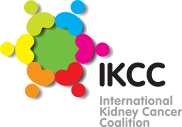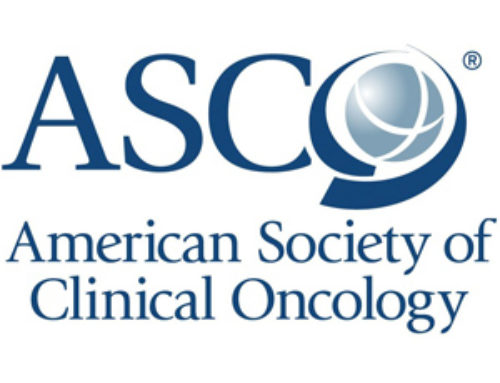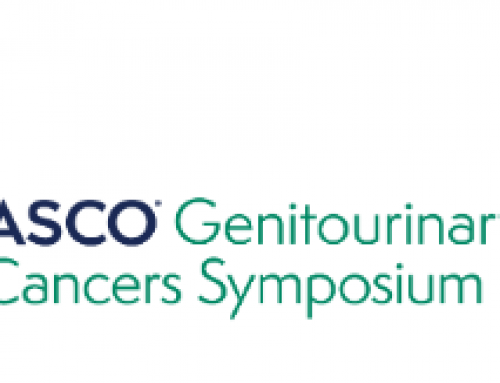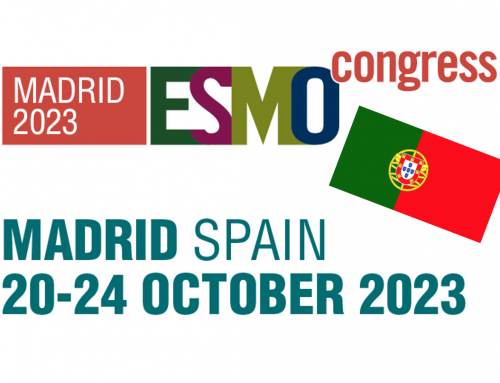Note: The following summary was prepared by patient advocates for the benefit of patient organisations who focus on kidney cancer. While this summary has been medically reviewed, the information contained herein is based upon public data shared at this meeting and is not intended to be exhaustive. Patients should ask their physician about any information that pertains to their care.
Summary of Kidney Cancer Take-Home Messages from ESMO 2019
Over 28,000 people attended the ESMO (European Society of Medical Oncology) meeting in Barcelona from 27 September – 01 October. The International Kidney Cancer Coalition was present with a booth to raise awareness and to also attend medical and patient advocacy sessions.
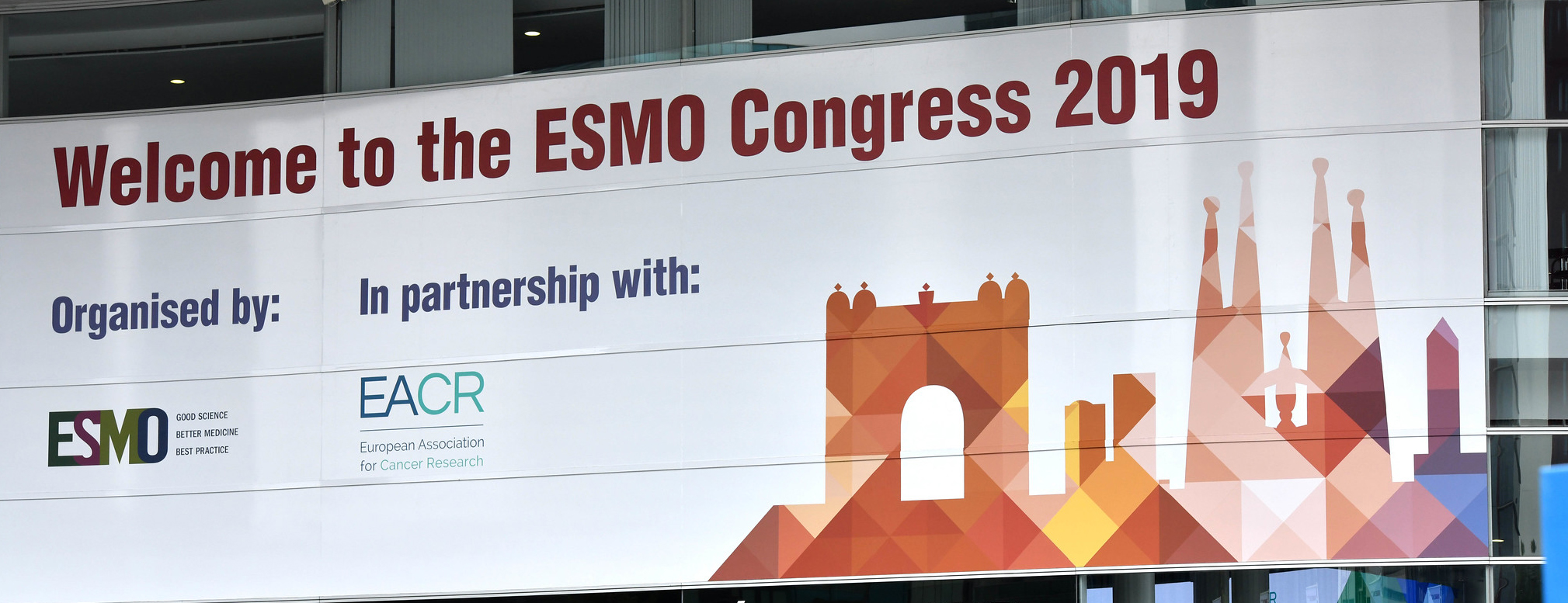
Titan-RCC clinical trial
If kidney cancer spreads (becomes metastatic), medicines can help control the cancer to prolong life and decrease symptoms caused by the cancer. Chemotherapy doesn’t work well for kidney cancer so the main treatments for the last decade have been TKI (tyrosine kinase inhibitor) tablets that block blood supply to choke the growth of the cancer. In the last few years, new treatments that stimulate the patient’s own immune system have shown responses in some people with kidney cancer. These successes have led to vigorous immunotherapy research to improve the outcomes and experience of people diagnosed with metastatic kidney cancer.
Two of the first immunotherapy medicines to be tested were nivolumab + ipilimumab (known informally as ipi/nivo when in combination). Ipi/nivo has been approved in many countries based on results from the CheckMate-214 trial. Ipi & nivo are given in combination every 3 weeks for 3 months (four treatments) and then nivolumab by itself for up to 2 years if there is response. The two drugs are not equal partners: ipilimumab had little benefit when given alone (1), while nivolumab does help some people when taken alone, and is generally less toxic than ipilimumab. Kidney cancer patients and their health care professionals have asked whether both drugs are needed in all patients? This was the fundamental question that the TITAN-RCC study (and other trials yet to report) hope to answer.
The TITAN-RCC study wanted to address the idea that a more tailored approach will improve the outcomes and experience of people taking immunotherapy. Patients started treatment with nivolumab alone and then used nivolumab + ipilimumab only if needed as a “boost” to control the cancer. At the ESMO 2019 annual congress, the initial results of the European TITAN-RCC study (representing 207 patients) were presented. About 100 people who had never taken a treatment before, and another 100 people who had taken a TKI tablet were included in the study. Everyone on the study was offered the same strategy; there was no direct comparison to a group of patients taking the standard “upfront” treatment.
The take-home messages were that:
- This is the first of several studies to assess the impact of a tailored approach using nivolumab first and then nivolumab + ipilimumab as an immunotherapeutic “boost”
- In people taking their first treatment for advanced kidney cancer, about a quarter of people (29%) taking nivolumab alone experienced a shrinkage of their cancer. Many of the people not benefiting went on to take the ipi/nivo boost, bringing the number who benefited up to just over a third of patients (37%). In patients who had previously received therapy, the response rate went from 18% to 28% with the ipi-nivo boost.
- However, the percentage of patients with complete disappearance of their disease (CR, or Complete Response) was only 2 percent, which is much lower than the 9 percent complete response seen in the Checkmate-214 study of previously untreated patients receiving ipilimumab plus nivolumab
- The side-effects overall seemed lower than the standard front-loaded ipi/nivo, but it is not possible to directly compare. No new side effects were identified.
- The study is continuing to follow-up the participants to understand the duration and depth of responses.
- Not all patients were well enough to take the ipi/nivo boost; specifically only 77% of the patients taking immunotherapy as their first line of treatment
- It is not possible to say that this idea of tailoring treatment is as good as the ‘standard’ method, but it looks good enough that a proper randomised trial might be appropriate.
SORCE clinical trial
After successful surgery for kidney cancer that is still confined to the kidney, it is attractive to patients to take a medicine to reduce the risk of the cancer recurring to increase the chance of cure. Medicine given in this post-surgical setting is called adjuvant therapy. TKI drugs (axitinib, cabozantinib, pazopanib and sunitinib) are effective in some people with advanced/metastatic kidney cancer, so several clinical trials have been done to test TKI drugs as adjuvant therapies in people with high risk early kidney cancers.
At ESMO 2019, the SORCE clinical trial results were reported. Patients were offered oral treatment for up to three years randomised to receive either a placebo for 3 years, 1 year of sorafenib, or 3 years of sorafenib. Like other similar clinical trials, the side effects appeared higher than experienced by patients with metastatic disease, and it was hard for patients to tolerate and therefore continue the treatment.
Because a lot of patients were leaving the study due to side effects from the sorafenib twice daily, about halfway through the trial, the sorafenib dosing schedule was reduced to 400mg once daily, with the ability to change the dosing schedule depending on how the patient could tolerate it.
Unfortunately, survival was unchanged by taking adjuvant TKI therapy, in this case, sorafenib for 1 or 3 years. There were no differences in delaying the return of disease or survival overall, or in the highest-risk patients, or in the patients with only the clear cell subtype of kidney cancer.
The conclusions of SORCE are as follows:
- Sorafenib should not be used as adjuvant therapy for kidney cancer (meaning after surgery to prevent return of disease).
- Surveillance remains the best way to care for patients at intermediate or high risk of recurrence following nephrectomy.
The S-TRAC clinical trial of sunitinib as an adjuvant treatment remains the outlier; it is the only clinical trial to report any numerical difference. The numerical difference seen in S-TRAC is measured by something called “disease-free survival”, which is the time between starting the trial and the first time of any of these events – the cancer grows back (tumour recurrence), the cancer is discovered to spread (occurrence of metastasis), a new cancer grows somewhere else (a secondary cancer) or the patient died due to any cause. However, the number of people who died during the trial was exactly the same whether one took sunitinib or not; S-TRAC, and every other clinical trial testing TKI after surgery in kidney cancer, showed no improvement in overall survival.
Clinical trials with immunotherapy in people before and after surgery for localised kidney cancer are underway with the goal to reduce the risk of recurrence and improve overall survival. For information about where these studies are available, please see: https://ikcc.org/clinical-trials-search/
ENTRATA clinical trial
The two trials TITAN-RCC and SORCE asked questions about improving the use of existing drugs, but there were also trials reported that tested new drugs. One of these was the glutaminase inhibitor telaglenastat, which was tested in the phase II ENTRATA clinical trial. People with advanced or metastatic clear-cell renal cell carcinoma whose disease had progressed after taking at least one or two other types of therapy were randomly assigned to receive either telaglenastat or a placebo alongside everolimus, which is an older drug for kidney cancer. Although telaglenastat + everolimus numerically “doubled” the progression-free survival vs placebo + everolimus, the actual results were remarkably poor; 3.8 vs 1.9 months. Telaglenastat works by blocking nutrients that kidney cancer needs to grow, and it is being tested in combinations with other kidney cancer medicines. It is hoped to generate a much bigger benefit when combined with other drugs; patients can expect a much longer progression-free survival from several other agents.
New HIF-2 inhibitor
Hypoxia inducible factor 2 alpha, or HIF2a, is raised in clear cell renal cell carcinoma, the most common form of kidney cancer. PT2977 or MK6482, is a tablet that can block HIF2a, and theoretically control or shrink renal cell carcinoma. A phase 2 study testing PT2977 in 55 patients with heavily pre-treated metastatic disease was presented at ESMO. These patients had received a median of three prior therapies. These patients tolerated PT2977 fairly well, with low haemoglobin and lower blood oxygen levels seen in a minority of patients. Twenty-four percent of patients showed at least 30 percent shrinkage of their disease (known as a partial response). The median time free of disease progression (progression free survival) was 11 months. These data are very promising and suggest PT2977 is quite active. This study will move forward into a phase 3 study testing PT2977 against everolimus.
Good news for people with sarcomatoid features in their kidney cancer
Kidney cancers begin from different cells of the kidney, and have different appearances under the microscope; some show empty (clear) cells, some show loops and curtains of cells (papillary), some are pale coloured (chromophobe). All kidney cancers can develop areas that are called “sarcomatoid” where the cells are small and skinny, and this tends to indicate a more aggressive cancer. Sarcomatoid features in kidney cancer have tended to predict that the standard blood vessel blocking tablets wouldn’t work well; however, a sarcomatoid description in kidney cancers is also associated with more immune cells in the tumour, which may lend it to be more responsive to checkpoint immunotherapy.
In support of this idea, a recently published analysis of a trial called CheckMate-214 demonstrated that patients with sarcomatoid RCC exhibited a statistically significantly higher response rate, progression-free survival, and overall survival with ipilimumab plus nivolumab immunotherapy compared with sunitinib.
At ESMO 2019, a further report was made on another immunotherapy clinical trial called Javelin Renal 101. This was a randomised phase III trial of first-line axitinib plus the PD-L1 antibody avelumab versus sunitinib for metastatic renal cell carcinoma. Data were presented from an analysis of the sarcomatoid patients in Javelin Renal 101 to characterise the response to combination immunotherapy and TKI therapy and to identify predictive biomarkers.
A total of 108 patients with sarcomatoid features in their cancer were identified – 47 patients received avelumab plus axitinib, and 61 patients received sunitinib. The avelumab plus axitinib arm achieved a statistically significant improvement in response rate in patients relative to sunitinib – 46.8% relative to 21.3%, and two sarcomatoid RCC patients had a complete response to the combination. Furthermore, among kidney cancer patients with sarcomatoid features, avelumab plus axitinib achieved a clinically significant 3.0-month improvement in progression-free survival and also had a statistically significant 2.4-month improvement in duration of response.
Taken together, the Javelin Renal 101 data, in conjunction with the CheckMate214 data, clearly suggest a benefit to immunotherapy and immune-oncology combinations in kidney cancers with sarcomatoid features. A recent analysis of other trials supports this conclusion.
Global survey of kidney cancer patients and caregivers
A large-scale global survey of renal cell carcinoma (RCC) patients to capture real-world experiences has never been undertaken. The International Kidney Cancer Coalition (IKCC) is a collaboration of 44 affiliated patient organisations representing 1.2 million patients worldwide that is committed to reducing the global burden of kidney cancer. Presented at ESMO 2019, the IKCC investigators report the results of a 35-question global patient survey designed to identify geographic variations in patient education, experience and awareness, access to care, best practices, quality of life, involvement in clinical trials and to highlight unmet needs. The survey was conducted in September through October 2018 and completed online or in paper form by kidney cancer patients and/or their caregivers. The survey was distributed in 14 languages.
The study results include 1,983 respondents from 43 countries, 1,400 of whom were patients and the remaining 583 were caregivers. Key results include clinical trials, patient knowledge and understanding, quality of life, and shared decision making. When asked about subtype understanding, 43% of respondents stated they “did not understand their subtype” at diagnosis and an additional 38% stated they “were not told their subtype at diagnosis.” 11% of patients still did not know their subtype at the time of the survey. Approximately 1 in 3 patients reported not being engaged in their treatment decisions at all; this finding occurred across all stages of RCC and in both major cancer centres as well as community or local hospitals.
70% of patients reported not being asked to participate in clinical trials; however, 89% of those patients said it was “fairly likely they would have participated if asked.”
Nearly all respondents (96%) reported experiencing psychosocial issues related to their RCC diagnosis, citing depression-related anxiety, fear of recurrence, fear of dying, and general anxiety. Only 50% of patients reported talking about their psychosocial issues with their healthcare providers and of those, 92% reported that discussion helpful.
In conclusion, the IKCC investigators conducted the first-ever global survey of patients with RCC, highlighting a significant lack of information, patient engagement, and lack of psychosocial support provided. This work supports the importance of healthcare providers adapting to providing more and better information to patients diagnosed with RCC to support informed decision making.
Invited discussant Professor Christian Kollmannsberger from Canada supported the initial findings and value of these findings and pointed out areas of improvement for subsequent surveys. Watch this 5-minute video: https://youtu.be/yl4Y5Z7AJnk
References
1. Ipilimumab (anti-CTLA4 antibody) causes regression of metastatic renal cell cancer associated with enteritis and hypophysitis. Yang JC, Hughes M, Kammula U, et al. Journal Immunotherapy 2007 Nov-Dec;30(8):825-30.
